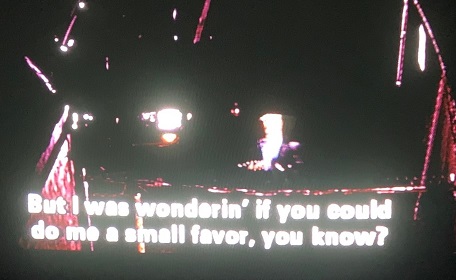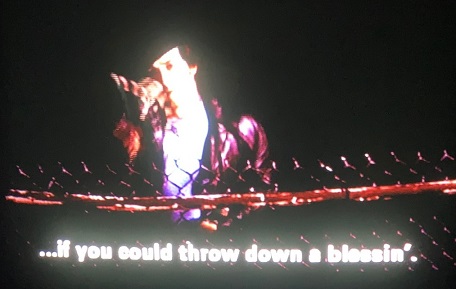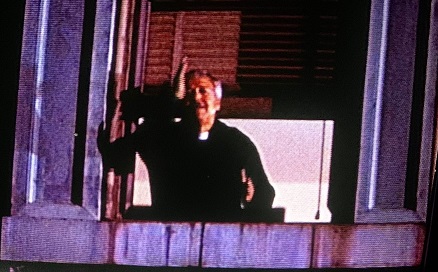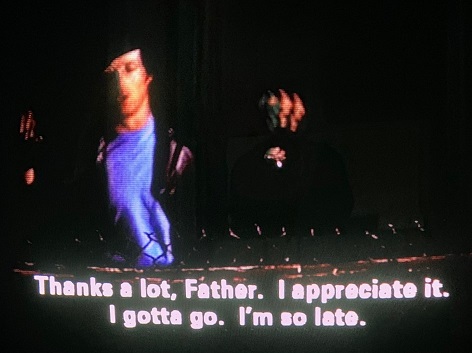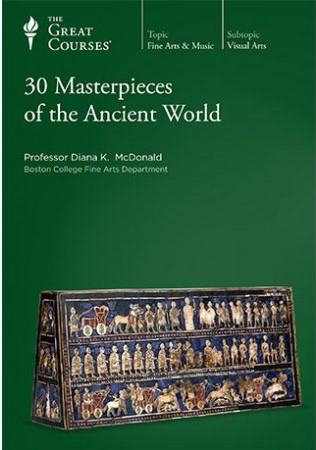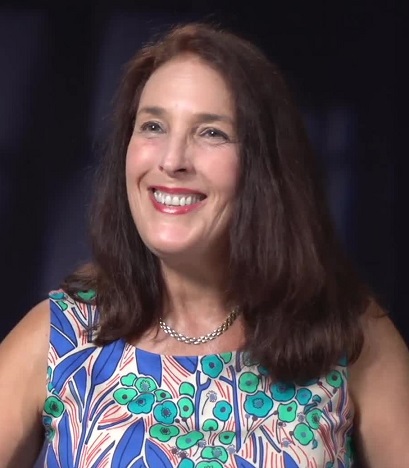|
Word Gems
exploring self-realization, sacred personhood, and full humanity
Editor's 1-Minute Essay
Cultism:
A Temporary Stage of Human Developmental Growth
return to "Cultism" main-page
“Religion is the most powerful entity on earth. A phenomenon that has conscripted millions to give or sacrifice their lives without so much as a minuscule query about their chosen beliefs or particular ideology. And today, thousands of years on, despite the huge advent, discovery and the advance of science forensic or otherwise, millions are still prepared and equipped to fall or kill in the name of their God, their Holy Scriptures, their messengers, their prophets and their faith’.” Cal Sarwar

the 'terrible two's' is a natural event, the glorious butterfly struggling to emerge from the chrysalis of non-personhood
I was waiting in line at a grocery check-out. A young mom stood behind me with her infant. I asked about the baby’s age.
“She’s 8 months!” came the perky response.
“It’s a funny thing,” I offered, “psychologists tell us that babies at this age don’t even know they’re separate from their mothers. They haven’t developed much of a ‘self’ yet.”
“I feel that to be true,” affirmed the young mom, “she’s very dependent on me.”
the human species' tendency toward cultism is just a step on the way toward self-actualization
The great Spirit Guides inform us that we come to this planet to “wake up,” to “individualize,” to develop a sturdy sense of ‘self.’ Until we do, we will not be ready to engage in the next phase of life in Summerland.
It’s all part of the maturation process. The “terrible two’s,” with children throwing fits and resisting parental direction, a process which intensifies, more and more, as the child approaches the “rebellious teen years,” is just part of growing up. It’s a natural psychological “separation from mom” as the child stumbles toward an individualized Self.
It’s not always a pretty process. And sometimes it can all go wrong. Sometimes, many times, during our developmental rebellion, we merely trade one master for another, one "parent" for another. It's like the old joke of the boy who ran off to join the army to get away from a domineering dad.
|
the purpose of the brain is to filter out, from universal consciousness, anything not correlating with the body’s perspective; in this ‘step-down transformer’ process, separate egos, with separate personal identities, emerge

Dr. Bernardo Kastrup, PhD philosophy, PhD computer science, for many years worked at CERN, the large hadron collider in Geneva.
“… the function of the brain is to localize consciousness, pinning it to the space-time reference point implied by the physical body. In doing so, the brain modulates conscious perception in accordance with the perspective of the body.
a brain that filters implies the existence of unbound mind, a universal consciousness
"When not subject to this localization and modulation mechanism, mind is unbound: it entails consciousness of all there is across space, time, and perhaps beyond. Therefore, by localizing mind, the brain also ‘filters out’ of consciousness anything that is not correlated with the body’s perspective… like a radio receiver selecting [a particular station], among the variety [with] all other stations being filtered out and never reaching the consciousness of the listener…
"[T]he filter hypothesis implies that consciousness, in its unfiltered state, is unbound. As such, consciousness must be fundamentally unitary and non-individualized, for separateness and individualization entail boundaries.
Editor’s note: Father Benson from the afterlife speaks of a being, formerly mortal, five billion years old, so advanced as to enjoy awareness of all life-forms in the universe; in this, we see the future of the ‘unfiltered’ mind. Read More on the “500 hundred tape-recorded messages from the other side” page. Editor’s note: There may be those, still in this world, with powers of expanded mind, so extensive, that a certain far-flung awareness of items in the universe may exist right now. Consider the advanced shamans of the South American Kogi people. They know things that escape the rest of us. See the inset-box.
the filtering brain creates the illusion of separateness, of disconnected personal egos
"The emergence of multiple, separate and different conscious perspectives or egos, is a consequence of the filtering and localization process: different egos, entailing different perspectives on space-time, retain awareness of different subsets of all potential subjective experiences, the rest being filtered out. It is the difference across subsets that give each ego its idiosyncratic vantage point, personal history, and sense of personal identity.
Editor’s note: A brain designed to filter, and reduce to a trickle, experience does not substantively support a theory of reincarnation which exalts much experience. We do not come to this planet to gain experience, as such, but to individualize, to transform one’s tiny sub-set of universal consciousness into a personal ego. With this, we become ready for what comes next in the afterlife, even if we are not yet “good” persons, which can be accomplished later, but only after one becomes a person in one’s own right. Read More on this need for individualization.
"The subjective experiences that are filtered out become the so-called ‘unconscious’ mind of the respective ego. Since each ego allows in only an infinitesimally small part of all potential experiences … the ‘unconscious’ minds of different egos will differ only minimally… As such, the filter hypothesis, unlike materialism, predicts the existence of a ‘collective unconscious’; a shared repository of potential experiences that far transcends mere genetic predispositions of a species…
the likely origin of the mystical experience
"[A]nd most importantly, the filter hypothesis predicts that one can have experiences that do not correlate with one’s brain states. Since here the brain is seen merely as a mechanism for filtering out experience … when this [filtering] mechanism is interfered with so as to be partially or temporarily deactivated, one’s subjective experience could delocalize, expand beyond the body in time and space, and perhaps even beyond time and space [giving rise to what is called the mystical experience]…”
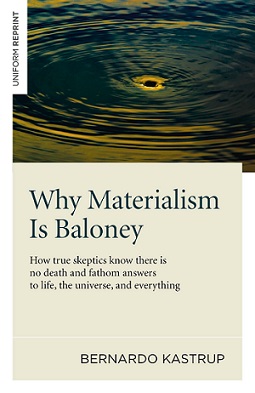
READ MORE of Dr. Kastrup's work on the “quantum mechanics” page
|
The following is channeled information via the mediumship of William W. Aber, the Psychic Research Society, as reported in “The Rending Of The Veil” (1898), compiled by J.H. Nixon. Testimonies were offered by numerous spirit-persons by means of full-form visible materialization.
"A form we recognized as that of the late Dr. Lamb, deceased, arose in the arena at the writing-desk. Mrs. Lamb, the spirit's widow, entered into some conversation with the spirit, and finally asked: "Well, Doctor, will you [address us] at this time?"
Spirit Dr. Lamb: "I will try... Friends, whenever a system, a faith, a doctrine, gets around it a sanctity which forbids inquiry into it, or comparison of it with other systems, faiths, or doctrines, that vail of sanctity hides, narrows, and weakens the moral and intellectual force of its votaries. When it demands of its votaries blind, unquestioning submission, it necessarily encourages blindness and ignorance.
"If a sense of veneration once seems to require of you that you shut
your eyes and ask no questions, you may take warning from that
moment that that sense of veneration is trespassing upon the true
domain of your consciousness, which is, or should be, more sacred
than any dogma; for, by its cultivation and rightful power, alone, can
your soul grow.
"No, not only that, but Christ's system is not the only one. I speak not alone to Christian nations, but of Christian creeds, and to all nations of all creeds now existent [that is, all belief systems]."
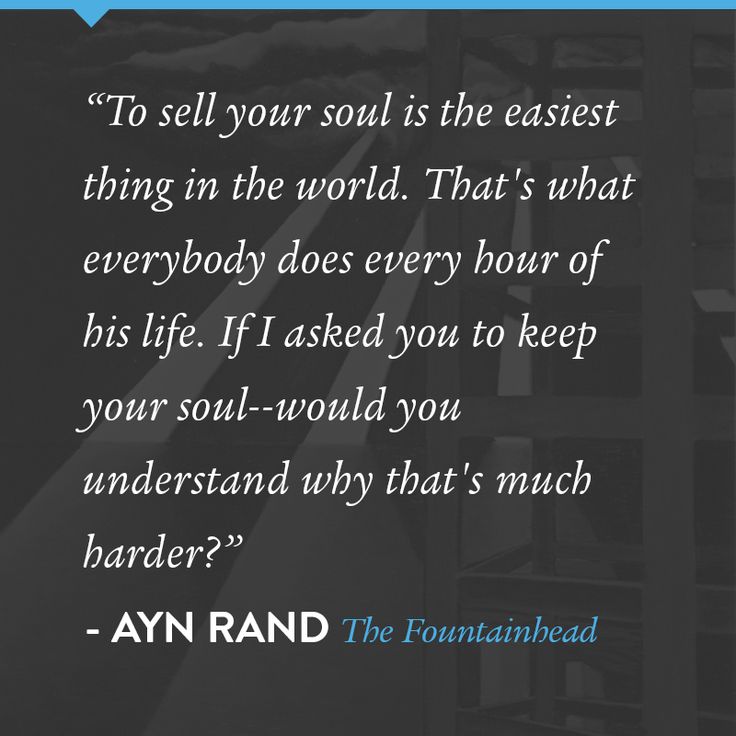
This "trading one master for another" can go on for a long time, in its various guises, until we get it right; until we discover the “true self,” the deeper inner-person, which is our link to God.
Some, and many, fail to fully achieve this developmental goal and will require “remedial work” on the other side before one’s “real life” might begin.
it's just part of a larger process
Cultism must be viewed within this larger dynamic of the soul’s individualization. Cultism, in its psychological underpinnings, represents a refusal to leave the protective shield of parental care. We want to stay in that soothing, reassuring -- what Dr. Ernest Becker called -- “oceanic sense” of certainty and safety that father and mother-figures offer to the infant mind.

It’s scary out there, and many timid souls refuse to venture beyond the solace of an “infallible” parental icon.
But we were not made to live under the custodial wing of a superintending authority figure. We were “made in the image.” A spark of divinity warms our deepest person. And surely we cannot become what we were meant to become without trusting in that “true self” and taking our place as an adult -- not an infant -- son or daughter of God.
The best source of advice, in my opinion, on how to access "the true self," will be found in these books:
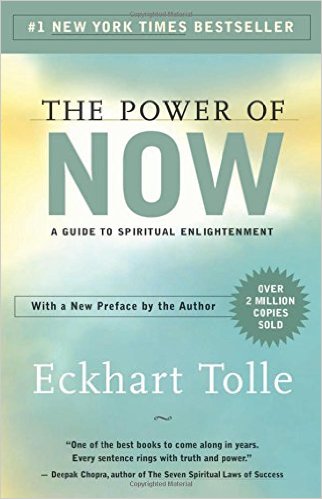 |
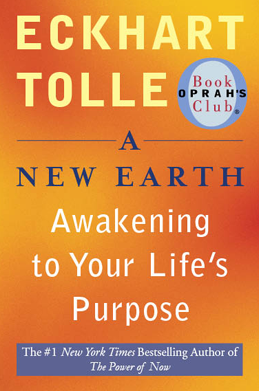 |
|
mental turmoil, throwing one into doubt, concerning common decency
In the “levels of consciousness” article I stated that those who inhabit these states of perception, particularly, at the bottom rungs of the ladder of being – shame, fear, guilt, apathy, and other dark mind-states – can’t imagine life being any other way.
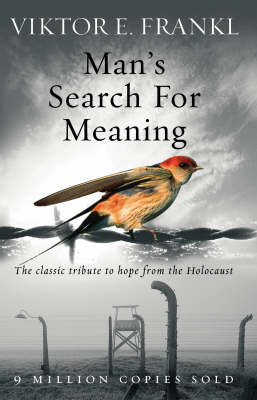
There’s a brief section in Victor Frankl’s memoirs of his ordeal in the concentration camp which speaks of a dehumanization process endured by the inmates. Allow me to offer excerpts:
The prisoners were “caught in a mental turmoil,” throwing “them into doubt” concerning all that they’d once believed to be true. “Under the influence of a world which no longer recognized the value of human life and human dignity,” one’s sense of self “suffered a loss of values, lost the feeling of being an individual, a being with a mind with inner freedom and personal value.” The constant threat of physical beating by the guards led a man to see himself as “an object to be exterminated,” just a plaything of fate and circumstance. “He thought of himself then,” not as a sacred individual with unique, intrinsic worth, but merely “as part of an enormous mass of people,” simply a nameless face among the throng, a creature with a number tattooed on his arm. “His existence descended to the level of animal life,” a view abetted by the oft-occurrence of the guards driving the men, with kicks and rifle-butt blows, “like a flock of sheep, without a thought or a will of their own.”
Editor's note: Cult leaders will reference Jesus' parable of God's people as "sheep" but will put a diseased spin on the term. They will imply or overtly state that people are helpless, stupid sheep and need to be led by an elite clergy. You're lucky to have them rule over you, don't you know. This is all power-and-control propaganda. The parable's allusion to sheep has nothing to do with mindless servile deference but was meant only to poetically highlight God's loving shepherd-care for his people. The point of the parable is not that sheep are stupid but that God carefully monitors our well-being; even if we're like a lost lamb, separated from "the ninety-nine," caught on a cliffside somewhere, God knows where we are and has not forgotten us.
Mercifully, atrocity as that endured by Frankl has not been our experience in this world, although we know similar brutalities have not been uncommon in history; further, given the rising level of incivility in our own country, and a growing expectation by the populace of civil war, we should not rule out anything in coming years. People have often been shocked at how quickly the thin veneer of civilization might be eroded and breached.
However, when I read Frankl’s testimony, I immediately thought of my time, earlier in life, in two different cult religions. The psychology was the same as that endured by Frankl. All cult-overlords, in principle, operate according to similar underlying precepts. I brought to mind the old dehumanization tactics designed to rob one of self-respect; the prohibition against thinking for oneself; the treatment of human beings as if they were no more than hapless creatures in a herd, with no innate dignity and right to self-determination; the outrageous elevation and adoration of the group’s Dear Leader, who alone, they said, is invested with the “right” answers and a direct pipeline to God -- as if God wouldn't get his hands dirty or couldn't be bothered to teach us directly.
If you live under this kind of despotism for very long, you will be “caught in a mental turmoil.” You will start to question that which your deepest sensibilities cry out for, in terms of personal freedoms. And you will begin to stifle yourself, even your “true self,” which was meant to lead you into all truth.
As we today live under “rule of law,” what's left of it, religious cult-overlords cannot easily get away with physical torture; unless you’re a child, and then you could be at risk of sexual abuse, or, at very least, a cult-indoctrination process, a "dinning into" inculcation, of guilt-laden mindset. This has afflicted untold millions of children, a form of child abuse. A great historian once said that we should be wary of those who obfuscate truth by using "fake news":
Paul Johnson, A New Deuteronomy: "When we are dealing with concepts like freedom and equality, it is essential to use words accurately and in good faith... beware of those who seek to win an argument at the expense of the language. For the fact that they do is proof positive that their argument is false, and proof presumptive that they know it is. A man who deliberately inflicts violence on the language will almost certainly inflict violence on human beings if he acquires the power. Those who treasure the meaning of words will treasure truth, and those who bend words to their purposes are very likely in pursuit of anti-social ones."
He was right. Inflicting "violence on the language," especially concerning a warping of minds of tender little children, will also result in "violence on human beings," if there is no rule-of-law to prevent it. We saw, we still haven't recovered from, what collective-ego institutions did to us and the common good in history when there was no rule-of-law, and it would be naive to believe that they would not do this again, if they could operate with impunity's free hand once more.
The Infallible Gurus in your life will do all they can to keep you off-balance, doubting yourself, in psychological chains. The smiling Nice Young Man at Church will preach his “holy” and “infallible” doctrines proclaiming that you are no good, that God could never love you without an elite's supervision, that you are defective. And if you live under this kind of cult-programming long enough, with self-loathing now well in place, you will resist any attempt by others, who might love you, to free you from this dehumanizing atrocity. You won't even realize that you're not free.
When one is trapped in these lower levels of consciousness – the shame, the guilt, the fear – everything seems normal, nothing is out of place to you. You will believe that you deserve to be abused. It will seem right for you to be bullied and ruled over by a Blackrobe. It will seem proper that you should not have access to your own judgment and decisions. And in this mental house-of-horrors, they will have you "coming and going," convincing you that any attempt to help yourself is but a disloyalty to God and a one-way ticket to hellfire.
|
|
well, that's just what a cultist would say

Doctor Strange (2016),
Stephen Strange (Benedict Cumberbatch)
and Christine Palmer (Rachel McAdams)
Christine: “So you joined a cult.”
Stephen: “No, I didn't. Not exactly. I mean, they did teach me to tap into powers that I never even knew existed.
Christine: “Yeah, that sounds like a cult.”
Stephen: “It's not a cult.”
Christine: “Well, that's just what a cultist would say.”
In my youth, after high school graduation, it got back to me that some of my classmates, knowing of my interest in things metaphysical and religious, were reporting that I had joined a cult; even, that I had shaved my head. This really burned me. Today, 50 years later, I smile at this memory and think of a comic routine by Michael J. Fox who, when confronted with two accusations, would vehemently deny one but remain silent about the other. For me, it would have been, “Ha! How ridiculous! I have not shaved my head!”
And regarding the charge of my joining a cult, along with Doctor Strange, I will brush this indictment aside with, “Not exactly.” Technically, I had not “joined a cult” but, rather, had merely transferred membership from a respectable childhood church to one of my own choosing. Thus, it was very unfair to say that I had “joined a cult” - because, it seems, I'd been a member of one since childhood.
Well, concerning my response, as Christine would point out, this is just what a cultist would say.
But here’s the problem: Nobody likes to be called a cult member. Most times, when this is done, it’s just a form of name-calling, of bigotry, of putting someone down and thinking you’re better. It’s what Tom Wolfe meant when he said that "A cult is a religion with no political power." If your church – and we’ll exclude the non-religious forms of cultism for the moment – is rich and powerful, then it’s not a cult, don't you know. It’s mainstream. How can it be a cult if “everybody’s doing it”? But if your group is a minority religion, with beliefs that are a little funky, then you’re a cult. That’s how it works. It's a way of keeping people in line and feeling "holier than thou."
But this politicized definition of cultism is not what we’re talking about here in these writings. I make people mad by calling their respectable neighborhood church a cult. But, listen to Christine, this is just how a cultist would react.
Cultism, at its etymological roots, has nothing to do with not being popular, or a lack of lobbying ability, or not drinking the kool-aid. These are contrivances, narrowly construed, that people latch onto in order to make sure that their particular cult is excluded from the popular definition. Nice try. (See these kinds of cheap debating tricks exposed in the “clear thinking” article.)
Let me make this plain, from another angle. You, me, and your second-cousin – everyone – we’re all headed for a new world. The present one is being given up for lost. And when you get over there, if you like to cause discomfort for yourself, then we can continue in the old cultish ways – be they religious, philosophical, ethnic, any sort of group-delimitation suiting one's fancy. As we’ve seen, they’re called “brotherhoods” by the Spirit Guides, and there are thousands of them in the next world, all populated by those seeking for a “strong father figure.” You can join any one of them. No one will stop you from surrendering autonomy to some “infallible” Dear Leader over there.
Editor’s note: I recently reviewed Father Benson’s “Life In The World Unseen,” and was reminded of his thoughts on this subject. He reports of those who maintain their old religions on the other side:
Each denomination, of course, holds to its own particular creed and formularies, such as it had on Earth… if the minds of people are stubborn and they are unable really to think for themselves, then do they remain shackled to their narrow religious views, thinking it to be all the truth, until a day of spiritual awakening dawns for them. Then they will see that their slavish adherence to their creeds is holding them back… they do no harm as they are, here, beyond retarding their spiritual progression. Once they realize what they are doing themselves, and take the first step forward, their joy knows no bounds. They will realize the ‘time’ they have apparently wasted.
Notice the judgment: "slavish adherence," or “unable to think for themselves,” or “shackled to their narrow religious views,” or “minds” that are “stubborn.” Yes, “they do no harm” – except to themselves.
There is one more scene from “Doctor Strange” that might help us:
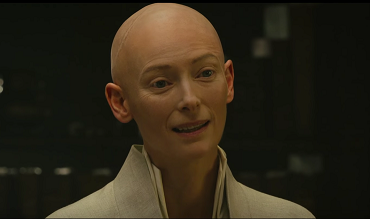
The Ancient One (Tilda Swinton)
"Arrogance and fear still keep you from learning the simplest and most significant lesson of all -- it's not about you."
In these writings, I very frequently reference the “false self,” the dysfunctional ego, and therefore you might suspect that an admonition, “It’s not about you,” would find support from me. Well, certainly, “you” as “egocentric you” or “you, to the exclusion of all others” is to be rejected out of hand. The problem with easy platitudes from a movie script is that sometimes they're presented by those who’ve not really explored any depth of meaning. The phrase, “It’s not about you,” at the surface, might seem to be wise advice. However, there’s a “good” and a “bad” to this.
Cultish organizations are very quick, either in explicit teaching or by subliminal message, to sell a program of “It’s not about you.” This is code-language, however, for “You don't have the right to think for yourself. You are unworthy. God could never love you. You are defective. You will never reach the high-bar but for the aid offered by the Dear Leader in your friendly neighborhood cultish group.” This is how people are controlled; specifically, by a heavy diet of the fear of death, and an existential guilt of innate imperfection.
'it is about you' in the next world
But Summerland society is not constructed on these perverse precepts. While there is a harmony and order to all things over there, the interests of the individual are not sacrificed for the group. In a very real way, it is “about you” in the next world.
While each sane and balanced person in Summerland takes part in various charitable service projects, these do not define one’s life – because, “it is about you.” Each psychologically healthy person in Summerland is engaged in a personal development and educational program, which might include the arts, math, science, space travel, adventure, parties, personal quiet time, friends, and sometimes just doing nothing.
One might say that society over there is comprised not of a federation, not of a centralized authority structure, but more like a loose confederation, a voluntary union, often ad hoc in nature, of uniquely talented individuals – as each of us is – who come together at times for the greater good, but, in the main, are dedicated to the proposition of reflecting God’s glory on an individual level, of manifesting the one-of-a-kind “inner riches,” of simply learning to enjoy one's existence -- which is not that easy -- and is what “made in the image” is all about.
Cults know nothing of this sacred personhood and individualization -- for them, it's all group initiative, and therefore take us in exactly the wrong direction, far afield, as per God’s individualized plan for each of us.
But wait. There's another supremely sorrowful reason to avoid the cults. In that darkened frame of mind, you will never find, or get to be with, your true mate, your eternal love. Just ask Christine:
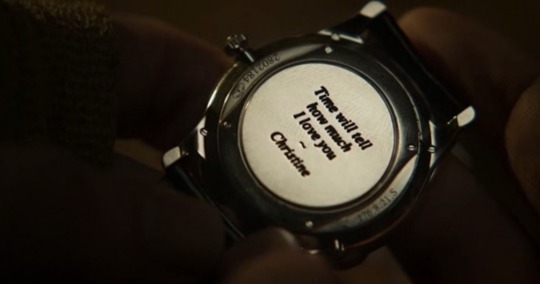
|
|
devotion and faithfulness are not necessarily products of a sane mind
I was driving in a country setting with properties lacking address-markings. I decided to stop to ask for directions. An elderly lady came to the door and we chatted for a few moments. She said she’d lived in the neighborhood for some time, and then she asked me about myself. I decided to mention my writings as the information might be helpful to a senior: “I have a website built around the ‘scientific evidence for the afterlife.’ It’s a pretty good place over there for everyone.”
Suddenly, her entire demeanor changed. Threatened by what I’d just offered, she now attacked with: “I believe in God!” And then proceeded to inform me that no one will go to heaven without paying homage to her particular god or goddess.
How frightened she was, almost trembling. Her assertions could be translated as, “Science has nothing to do with it. You just have to believe – in the right god, the right doctrines, the right church. And everyone else is a heathen and damned.”

The movie “Emperor” explores the psychology of the Japanese people, especially during World War II and the aftermath.
There’s much discussion concerning “devotion” to the deified Emperor Hirohito. The “loyalty” offered him by the general populace was described as “selfless.” Further, this diminishment of personal identity, it was acknowledged, could easily result in the most savage and brutal conduct.
courage, loyalty, or devotion, without knowledge, are no virtues
The ancient Greeks, in their debates, noted that what appears to be courage, but without knowledge, is no virtue. It’s just another blind passion, a fear-and-guilt expression of an inner, corrupted sense of “self.”
Editor’s note: See Kierkegaard’s comments on those who “lacked a self.”
Allow me to preface further comment here with a statement that the Japanese culture is as noble or worthy as any other societal belief-system. But, as I listened to the movie's sketching of the Japanese character, I noted that the speakers viewed all of this “devotion” and “loyalty” and “selflessness” as somehow unique.
There’s nothing unique about it. While the particular expression of cultural “nomos,” as Herodotus used the term, will vary from group to group, while the flavors will change, it’s fundamentally the same the world over. The stage props, the cast and protagonists, the scenery will come and go, but cultism, at its roots, is substantially identical in all of its manifestations.
All expressions of cultism – every one of them – exhibit, in some form or fashion, the following characteristics: (1) There’s always some needy Ego, some Dear Leader, some “holier than thou,” some Big Shot Guru; and this Head Honcho (2) really knows; he or she is larger than life, is god’s agent, holds the holy key, knows the best way, or has some sort of pipeline to higher power; therefore, (3) if only we would agree to believe, and surrender autonomy and critical reasoning faculties, then the frightening uncertainty of living this life would be alleviated by living under the protective mantle of the self-appointed strong father-figure
That’s how it works. And it doesn’t matter if this poisonous, serf-producing dynamic presents itself in a religious, or political, or scientific materialistic, or corporate manner – it’s all the same. In every case, there's a needy Ego to be mollified; in every case, “true believer” drones are produced who willingly, and pathologically, become “devoted,” “loyal,” and “selfless.”
I would assert that virtually all of the atrocity, virtually all of the mass murder and torture, in the last ten thousand years, has been committed under the banner of selfless devotion and loyalty to some Dear Leader.
Postscript:
"Emperor" is also a great love story...
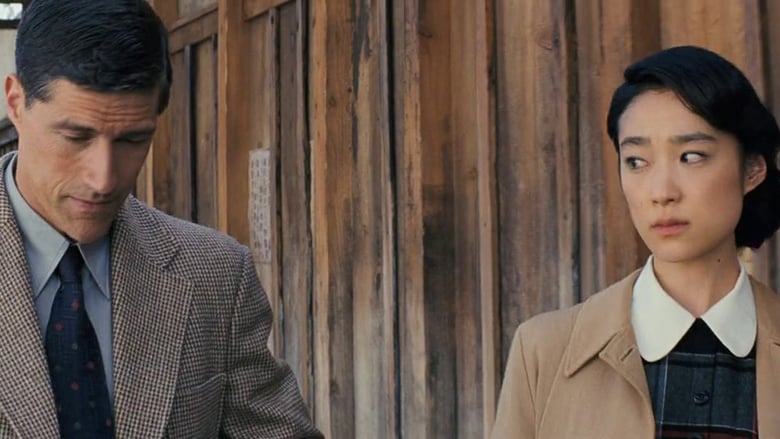
Emperor (2013) Brigadier-General Bonner Fellers
(Matthew Fox) and Aya Shimada (Eriko Hatsune)
In this world, we are often separated from ones we love most by the trials and horrors of evil. There are other worlds coming, however, wherein lost loved ones will be returned to rightful owners. All this acknowledged, it cannot occur, in any meaningful sense, until one expunges from one’s spirit any taint or coloration of cultism.
Why is this so? Cultism, we recall, reduces one’s sense of sacred self. And it is by way of the sacred self that we will recognize, and effect union with, a sacred beloved.
|
|
everything the ego does devolves to one central pathology
All this talk of the Ego and its ensuing widespread calamity may seem overdone. Therefore, allow me another attempt to explain the pervasive nature of its sordidness confronting every human being.
What do the following 10 examples have in common?
(1) the elderly lady, visibly frightened of new information which might threaten her view of a particular god or goddess rescuing her upon transition to the next world;
(2) screaming fans, shouting with hysteria, hoping to touch, or even glimpse, an adored celebrity;
(3) billionaire corporate heads employing new technology to increase surveillance on a populace, thereby diminishing rights to privacy;
(4) national leaders, with big sloppy grins, posing as benefactors to the country’s interests, while undermining civil liberties, the rule of law, and taking to themselves more power;
(5) supervisors or fellow co-workers seeking to deny promotion or commendation, though you’ve earned it and are the best choice for the new position;
(6) social-media platforms which censor free speech because of "misinformation," meaning, it doesn't conform to a totalitarian agenda;
(7) materialistic scientists who repress, ignore, or otherwise vilify the "scientific evidence for the afterlife";
(8) a friend, lover, or family member who insults you, slants a story, attacks you, cheats you, because they disagree with, and are threatened by, your new-found beliefs.
(9) the neo-Postmodernist, the delusional “woke” adherent, occupying the lowest level of consciousness, arrogantly and vacuously proclaiming that rationality itself is part of “white man’s” oppression; that, even to be on time for work is a “white thing”;
(10) the soldier, part of an invasion force against a peaceful people, firing on, murdering, civilians because it’s his “duty” to “follow orders” of his imperialistic superiors.
We could go on listing many more: the gossip in your neighborhood who stands by her window, judging and condemning, trafficking in the mundane details of others; the college instructor who ridicules, and punishes with lower grades, those who disagree with his totalitarian leanings; the so-called news-reporter, piously claiming to have entered her profession to “make a difference,” incessantly offering selective and screened factoids to support a hoped-for Orwellian dystopia; the suicide-bomber, or the mad driver barreling into a crowd of civilians, or the shootist, seeking for publicity, or revenge; the high-school friend, once a confidante, but suddenly counting you an enemy when she veers off into new philosophical moorings; the martinet husband, psychologically, or otherwise, abusing a wife whom he does not love yet will not allow to leave his fiefdom.
What is the common thread?
In each case, a needy ego has identified with some power-structure, some external augmentation, some strong “father figure” to the inner child; an adoption of surrogate life, a face-saving production, a seeking to enhance oneself, to make oneself “more” and “above,” to feel important and a “somebody”, a propping up and bolstering, an assuagement of underlying fears of “not making the grade,” of “I am not enough,” leading to a surrendering of autonomy and critical faculties, a victimhood pathology of linking oneself to some external image of authority or purported salvation.
According to the great psychologists, in its deepest writhings, all of these examples represent the fear of death on display. In each case, a perceived locus of one's life and essence, one’s “center of being,” lies outside oneself, stands subservient to some icon of imagined greater energy, wisdom, or value. In other words, in all this dysfunction there is no sense of having been "made in the image," of “being enough,” no personal view of the limitless "inner riches," one's divine heritage as "spark struck-off from God." As such, this deficit leads to servility, to existential crisis, to forms of insanity. And therefore nearly 100% of the denizens of planet Earth are engaged in some form of the above cultism.
|
more than drinking the koolaid
The long reach of cultism encompasses much more than crackpot churches. The root idea of cult offers the sense of "cut." This core concept of "cut" leads us to images of refinement and refashioning and, by extension, development, control, pattern, order, and system.
Cultism as systemization finds a ready home in religion and philosophy which seek to regulate and redistill the patterning and ordering of ideas. However, in a larger sense, the spirit of cultism extends to every facet of society. We find it scheming and sedulously at work in politics, academia, family, corporations, entertainment, science, artistry – anywhere power might be gained by capturing credulous and fear-based minds.
See the “cultism” page for a full discussion.

|
I submit to you, every insult, abuse, affront, contempt, disrespect, misrepresentation, aggression, assailment, invasion, violation, trespass, usurpation, infringement, conflict, and war – in the history of the world, and your own personal history -- have resulted from egos, at the expense of others, attempting to feel better about themselves, pursuing to quash the sense of inner neediness, of “I don’t have enough” because “I am not enough.”
every ego wants something from you
What does it want?
It wants to use you to feel better about itself, to fill up the emptiness inside. It will attempt to accomplish this make-over by (1) comparing itself to you, finding some metric by which it can judge itself as superior; (2) deriving pleasure from you, an effort to cloak the pain within; (3) ruling over you, power-and-control measures, to enhance and propagandize itself; (4) minimizing, discounting what you represent in order to aggrandize its distorted belief system about how life works; alternatively, if demonizing doesn’t succeed, it will (5) surrender to you, call you a genius or a god, by which subservience it hopes to find security and safety under the protective mantle of a “strong father figure.”
further distillation
Can we, even more, reduce all of the above to common element?
The ego, at a deeper level, is driven to create a perception of itself as “other.” This generalized sense of “otherness” is then leveraged into a “me against them” lens of looking at the world. And it’s not just a contrariness toward other people. If others aren’t around, or even if they are, the ego can make us feel estranged from life itself and, of course, God, as well, as we blame, and set ourselves against, these for perceived unfairness.
Why is this important to the ego? According to ancient Spirit Guides, we come to this world for one primary reason: to individuate, to become persons in our own right; all other aspects of development, for the moment, are secondary.
The ego will reconfigure memories and current sensations to emphasize “otherness.” Much of this reformulation can be very unpleasant to contemplate, but it does accomplish one thing: even though at the quantum level we are connected to all, at the surface of personality “otherness” creates a stand-alone psychological entity that becomes the perception of “I”, which is the very definition of ego.
Editor’s note: Concerning the above “10 examples,” each of these represents a certain unsavory aspect of the dark side of human nature. But this skews the picture. The dysfunctional ego also operates in the arena of heroic service and commendable, stalwart mettle.
I am thinking of the celebrity artist, athlete, singer, politician or other notable who publicly dedicates his or her life to good works as a result of purportedly drawing strength from a patron saint, religious icon, or savior-god. The ensuing good works might be larger-than-life, consummated even in the face of great privation and adversity. All of which is meant to proclaim to the world, “I do all this by the power of my relationship to said patron saint, religious icon, or savior-god.”
But, is this reality? How are we to view such valorous and epic conduct? Does it happen by way of aligning one’s person with an external divinity?
We would do well to recall that any number of non-religious “secular saints” might be brought to our attention who have nobly, in a lion-hearted way, offered charitable service, even to the point of death. One example immediately comes to mind: Dr. Viktor Frankl, in the concentration camps. He accepted the task of encouraging other inmates, despite near-starvation and often-beatings by the guards. He served the contagious typhoid dying, and, more than once, refused opportunity to escape the camp in order to remain with the suffering.
The dysfunctional ego is led by its foundational premise, “I don’t have enough” because “I am not enough.” As such, it looks for salvation from an outside source. This is pathological and takes us in the wrong direction, far from sacred destiny of living from one’s sacred center, the true self, one’s inner connection to God.
We are not to conduct ourselves as little children, living under the mantle of a “strong father figure,” a patron saint, religious icon, or savior-god.

We are to open our eyes to the inner riches, the innate “made in the image” reservoir of strength, available to all of us as sons and daughters of God.
|
|
Big Religion became the most powerful institution in the Western world by manipulating the fear of death, thereby controlling whole continents and civilizations
Dr. Bernardo Kastrup, PhD philosophy, PhD computer science, interviewed by Beshara Magazine:
“[Scientific] materialism didn’t become mainstream without reason. One of its biggest advantages is that in one fell swoop it eliminated the biggest fear humanity has had throughout its history, which is: what are we going to experience after we die? In Christian terms, are we going to go to hell? This fear has dominated human life to the point that the Church could control whole continents and civilizations and became the most powerful institution in the Western world. It is this fear that makes us feel guilty, which imbues us with anxiety and a sense of responsibility for what we do. But if we don’t believe in anything beyond material existence, we don’t need to worry.”
|
|
pathological harmonizing
A conversation with a long-time fundamentalist friend reminded me of how I used to think in my early days.
ticket to the policemen's ball
Before I speak of this, let me tell you another story. In a 45 mph zone, a traffic cop pulled me over for going 52. I was really annoyed by this, now with a ticket to pay. Worse, the officer was rude to me, taunted me, and I had to bite my lip from saying some things. Before gaining control, however, I let slip from my mouth a lame excuse, a small justification which wasn’t entirely true. I tried to calm myself, reminding myself of what I’d written about “open a channel” and being willing to be taught in all lessons of life.
saying whatever the ego has to say
Somehow, in those tense moments, I managed to do this, and my reward was a flash of insight. I saw, more clearly, how easy it is to say whatever we have to say to save face, to protect the ego, to justify oneself. It made me feel very bad to know that I’d said something that wasn’t true, was disappointed in myself, but the clearer perspective of how one so easily “says anything to save face,” I found to be somewhat amazing and overwhelming.
Back to my fundamentalist friend. Many years ago, we used to belong to the same church, and so I well understood her philosophical positions. The conversation, at her behest, turned to the infallibility of the Bible. She doesn’t know what I know, and so she’s still stuck in the old ways of thinking. And she reminded me of how I used to find coherency and legitimacy in those old ways.
In my “Bible article,” dozens of examples are offered illustrating how the Bible cannot possibly be “dropped from heaven.” However, probably the most egregiously offensive item would have to be a section in the book of Numbers:
"Kill every male among the little ones, and kill every woman who has known a man intimately. But keep alive for yourself all the young girls who have not known a man intimately." (Numbers 31:17,18)
"God's" troops are offered, as perk for battle victories, captured little girls of middle-school age as sex-object play-things -- but all the rest can be quickly disposed of.
Mass killing in the Bible, purportedly, an order from so-called “God,” is common fare in the Bible's writings. But this particular directive concerning pre-pubescent little girls really takes the prize for barbarity.
As my fundamentalist friend and I discussed matters such as these, I was reintroduced to lengths to which the egoic, cultish mind will go in order to preserve its world-paradigm. One would think that a license to sexually abuse, and then dispose of, young girls would be an open-and-shut case in terms of denouncing any chance of the Bible as infallible. But, no. Counter-arguments, from the entrenched cultish mind, unfold like this:
“God must have had a really good reason for allowing this.”
“These pagan people probably had all sorts of diseases and God needed to have them put down.”
“These pagan people had no right to be in the Promised Land.”
“There was so much idolatry with pagan gods with these people that it was better for them to be wiped out.”
With these arguments, we’ve entered the arena of “say whatever you have to say” in order to save face. But what I found particularly unnerving is that I recognized these arguments. In my youth, I used to accept some of this, used to say some of this, as justification for the atrocities in the Bible.
Later, as I thought more about this incident, and also the run-in with the traffic cop, I perceived, more clearly than before, just how dangerous the egoic mind can be. And think about politics in our world today, another example of the egoic mind identifying with some external bolstering. Think about how certain ones in politics today will “say anything” to advance their agenda.
As mentioned in the Galatians writing, a long time ago I invented the phrase “pathological harmonizing” to describe the insistence -- even in the face of credible contrary evidence -- of claiming that the Bible is a perfect document and “God breathed.” You really have to play games in your head to believe this. But, when the cultish ego is shoved up against the wall, confronted point blank with obvious errors or black-and-white barbarities in the text, then it's do or die, and it will say anything to save itself.
What does it mean “to save itself”? It means that the egoic cultish mind has identified with, made itself equal to, draws strength from, certain concepts. Because of this equality, the mental propositions must be defended at all cost; for, to lose such an argument is tantamount to losing one’s own identity, one’s own life. And therefore the dysfunctional ego will say anything to save itself.
saying whatever you have to say to save yourself: the universal experience
Frequently, I have made the charge that any person, beset by sufficient provocation, laboring under substantial unenlightenment, in the right circumstance, is potentially able to commit any crime, any atrocity, any brutality, of history. I continue to make this statement because we have not believed this to be true.
Dr. Viktor Frankl, Man’s Search For Meaning: “A selection of sick or feeble prisoners, incapable of work, would be sent to one of the big central camps which were fitted with gas chambers and crematoriums. The selection process was the signal for a free fight among all the prisoners or group against group. All that mattered was that one’s own name … was crossed off the list of victims… There was neither time nor desire to consider moral or ethical issues. Every man was controlled by one thought only: to keep himself alive… Only those prisoners could keep alive who … had lost all scruples in their fight for existence. They were prepared to use every means, honest and otherwise, even brutal force, theft, and betrayal of their friends, in order to save themselves. We who have come back, by the aid of many lucky chances or miracles - we know! - the best of us did not return.”
Until we do perceive the reality of this “heart of darkness,” there can be no authentic spirituality; for, until then, the best we might offer is a hollow elitism, an empty “I thank thee Lord that I am not like other men.” Jesus, in this parable-teaching, pointed out that only those, seeing clearly, who had overcome the Pharisees’ “holier than thou” dictum, would be justified before God.
In “Prometheus,” Lateece also warned us of the inner "madness maddened," this charade of “the good person,” a mask we wear – as Elizabeth chided, one that we “hold up with two hands.”
No one is immune; no one gets a free pass on this. It’s a required course for graduation; no one can become a truly spiritual person without this deeper vision. Not everyone will need to endure a concentration camp ordeal, but, in this world or the next, to one degree or another, each person will be given a particular “classroom” in which to observe what he or she is really made of; that is, the "false self." It won’t be pretty.
In our present egoic condition, we’ll say anything, as we fight to keep that mask from slipping. In any case, Frankl has already answered for us. In the camps, a human laboratory testing the depths of the “heart of darkness," as the raw and untempered dysfunctional ego -- its cravings, motivations, insanities -- was stripped bare for all to see, it became clear what’s behind that mask of polite civility.
In this darkened state of the ego, even those meant, and destined, to love each other eternally - might betray each other. Just ask Kairissi and Elenchus.
|
|
yo, Father, can you throw me down a blessing
With the use of words like “conspiratorial” and “malicious” [on the "Dante" page] some will say, “There are bad apples everywhere, but if you came to my church you would find a good pastor, a good man, and everyone loves him.”
We’re reminded of the scene in Rocky II.
Our favorite boxer is parked outside his pastor’s window, shouting, “Can you throw me down a blessing, Father?” The warm and loving man readily offers a prayer and a blessing.
We’d all like to belong to this man’s church; or, if not as a member, we’d most certainly like to have him as a friend and good person in our lives. Absolutely.
All religions have certain good people in leadership positions. And this is why the members stay; that is, unless the group atmosphere becomes so toxic with cultism, with fear and guilt, and that’s another reason why people stay, that is, are too afraid to leave. But a warm and loving leader draws people and keeps them coming back and everybody likes it.
These good people on the local level, like Rocky’s pastor, are not involved in any kind of dramatic “simony” or power-and-control games. Those higher up on the food chain, or maybe the other pastors across town, probably are playing power games, but your good pastor loves what he’s doing, and loves his people, and the people know it, and they’re loyal to him.
On the Word Gems site, on a thousand pages, we’ve discussed ad nauseam how in Summerland we’ll be giving up and outgrowing our religious faith of this world. The apostle Paul in Galatians said that all religions here represent an early developmental stage on our path to maturity.
Knowing this, should we remain in a church, here and now? That’s up to us. Consult with your own inner guidance to see if staying serves the greater good. I will say this - if I knew a really good pastor like Rocky’s, I'd be tempted to want to keep him in my life on some level. I might not believe in "throwing down blessings," but, you know what, that doesn't matter so much when confronted with the warmth of sincere affection.
|
|
Weaponized Art: Part II
30 Masterpieces Of The Ancient World
Professor Diana K. McDonald is an art historian on the faculty of Boston College. She has spent her life investigating primeval art – even from age 6, she jokes, with a trip to Mexico’s art treasures, courtesy of her parents. Dr. McDonald has critically examined ancient artwork in the museums and archeological sites of more than 40 countries.
In the following discussion, I offer my observations concerning the principle features of ancient art – what it meant to the people of long ago, its purpose, how it impacted the development of civilization, and its effect on the evolution of the human spirit.
Essentially, the spirit of cultism infected all aspects of art in the ancient world.
READ MORE
|
|
the synthetic but de facto 'unpardonable sin'
You will want to read the important article on what's called "the unpardonable sin." It's not what it seems. However, there is a relevant principle in play concerning our discussion here.
What do I mean by "synthetic" and "de facto"? The hard-hearted men who attacked Jesus and shouted “Satan did it” put themselves in a mental frame of mind from which, Jesus warned, it would be very difficult to recover oneself. But even if one is not purposefully engaging in outrageous polemic, it’s still possible to slide and stumble into this kind of self-incapacitation through "the back door" in a synthetic but de facto way.
Those who allow themselves the cheap luxury of victimhood by offering mindless allegiance to any cultish organization, movement, or philosophy – be it of the religious, political, materialistic scientific, corporate, or academic sort -- virtually by definition, will surrender all or part of their reasoning faculties in favor of some Dear Leader promising safety and security.

And when this laying down of critical-thinking ability occurs, the gulled true-believer begins to “saw off the branch” he or she is sitting on, that is, they come dangerously close to creating a synthetic but de facto version of "the unpardonable sin." In other words, if we shut down our own internal guidance system, then how can we recover from that? This is the essence of the "unpardonable sin." It's not that God could never forgive us -- God is never offended by anything -- but the issue becomes, how can we forgive ourselves and heal our own minds?
|
|
the script writers of Star Trek said they modeled The Borg on the psychology of the typical cult
Borg member, “Seven Of Nine” (actress Jeri Ryan), was introduced to the Star Trek: Voyager cast at the beginning of season four, episode “Scorpion, Part II.” Her debut created much interest among Trekkie fans.

Voyager script writers were looking for metaphors to describe Seven's release from The Borg. They settled on images of the wolf, the drug addict, and the cult-member. As reported on the Star Trek: Voyager Fandom website:
The analogy that Janeway makes between the Borg and wolves, in this episode, was much in keeping with the way that members of Star Trek: Voyager's writing staff came to think of the Borg ... as a cult that Seven was no longer a member of. Joe Menosky explained, "[These] images are negative. You'd have a main character, who in the back of your mind you're thinking, she's [like] an ex-drug addict, an ex-cult member. We were really thinking about that, and we came up with the idea of the wild child, the wolf child, the little girl who was raised by wolves in a forest and is finally reclaimed by humanity. She always was human, but for a formative period of her life she was also a wolf." Not only was this parallel to Seven obvious to Menosky but he also believed that the Borg were like wolves because, although they could both be seen as very dangerous and frightening, there was also something potentially awe-inspiring about their collective state, such as a wolf pack. Continuing to muse over the merits of this analogy, Menosky related, "That gave us something that was a little ambiguous and it didn't make [Seven] a victim so much. It gave her also an edge of arrogance and haughtiness. That was the image that we settled on." (Cinefantastique, Vol. 30, No. 9/10, p. 78)

Editor’s note: It’s interesting that the apostle Paul also combines images of the wolf and the cult in his address to the elders of the congregation at Ephesus. He laments that, after his departure, they would consume the flock like a wolf, and aggrandize themselves like cult leaders. See my article here.
how to think like a Borg
Seven Of Nine’s Borg-influenced comments are instructive to us as they reveal much about cult psychology:
We are Borg!
“Seven” is asked if she has a better idea concerning a technical matter. Her immediate response is a disdainful and haughty, “We are Borg.” Pressing the issue, Voyager officers interrogate her as to how the Borg acquired superior weaponry, to which Seven offers another crisp, “We are Borg!”
Seven’s “one size fits all” retort means to convey, “We are superior, we are better, we are the chosen.” All cults thrive on this spirit of elitism. Whether in the form of political party, scientific theory, or religious organization, cultism in its darkest expression, invariably will tell you, “We are the elect, our doctrines are the one and only legitimate ideas, we are the favored.” We are Borg.
You are erratic, conflicted, disorganized. Every decision is debated, every action questioned. Every individual entitled to their own small opinion. You lack harmony, cohesion, greatness. It will be your undoing.
Seven is proud of her unquestioning conformance to Borg standards. She views intellectual docility as a great strength. She disdains autonomous and self-directed living. Actress Jeri Ryan comments: "She doesn't start out human, you know [but] as a complete blank slate, and that's a very rare opportunity to be given as an actor. So she started out as a machine, essentially, with no autonomy, no mind of her own, no opinions, no feelings, no emotions, nothing."
Strict religionists believe – and I speak from personal experience – that a questioning spirit, studied opinion, a thoughtful approach is an offense to God. In support of this view, Proverbs chapter three is often quoted, which, they say, affirms the doctrinaire position: Trust in the Lord with all thine heart; and lean not unto thine own understanding. In all thy ways acknowledge him, and he shall direct thy paths. Be not wise in thine own eyes: fear the Lord, and depart from evil. To entertain a private thought or judgment, they say, is equal to not trusting in the Lord. But it’s not just rigid church people who despise individualism, cultish political parties and materialistic science are also very disapproving of any heretical idea, anything that deviates from party-platform. It's all quite Borg-like, in that, all thought must reflect the collective mind.
(Partial excerpts from the Fandom website) Seven of Nine retorts that Janeway is an individual and therefore cannot understand what it means to be Borg. However, if she [Seven] must live as an individual, as Janeway suggests, then she should have the right to make choices, she muses, as individuality means choices - including the choice to return to the Collective, if she so wishes. Janeway responds that she does not have that right, as she is unable to make rational choices. The Borg took that ability from her the moment they assimilated her. Until she is convinced that Seven has re-developed it, Janeway will make choices for her: Seven will stay on Voyager. Seven responds that Janeway is then no different from the Borg in this attempt to impose one’s will on another, of forcing an identity upon her that is not her identity. Janeway forcibly insists that it is her identity, that she now has recovered what the Borg stole from her, a potential ability to live her own independent life. Seven yells out that she doesn't want to live that kind of life.
Well-established rubric, grounded in centuries-old English common law, and likely Roman antecedents as well, holds that contracts are void or voidable if the acting party is a child, cognitively infirm, or otherwise lacking in mental capacity to establish assent via authentic meeting-of-the-minds. In other words, if you don’t know what you’re doing, and negligence is not a factor, then you can’t be held liable for your actions. In the teachings of Jesus we find this same principle in play: he said that the spiritually immature “know not what they do.” Janeway also rules on this basis. It doesn’t matter what Seven gushes to insist right now as she has lost sight of her essential humanity. In a very real sense, when cult members, of all stripes, lay down their rational faculties in favor of some Dear Leader, they also set aside the sine quo non of what it means to be human. When people cross over to the other side, Guides like Father Benson assist psychologically damaged cult-members to gain their bearings. Consider the dynamic: As with Janeway, the Guides do not ask “What is your choice concerning what you'll become? fully human, animal, or vegetable?” No, instead, the Guides act according to what their charge "ought" to want, what they would want oif they were sane, that is, according to underlying “made in the image” nature which dictates destiny. This acknowledged, if troubled new arrivals begin to shout, as Seven did, “I don’t want to live that way,” no one forces them to do anything. In these cases, the recalcitrant one is left to his or her own devices, sinking more and more into darkness and suffering, until such time that one is ready to embrace what one was designed to be. Our right to choose is not something unlimited or absolute; we cannot choose to become a lion, rosebush, stone, or earthworm. We are required to develop within the parameters of sacred human potential - Kairissi and Elenchus discussed this in "Prometheus"; this also means that we do not have the right to reincarnate, or be met by Mother Mary, or be carried by flaming angels to a great white throne, or any other fabled alternative. Human volition does not extend beyond the purview of Divine Parental Will, but allows only one grand subsuming choice, that of becoming a mature son or daughter of God. In the end, we cannot run, die, hide, or escape this mandate - just ask anyone in the lowest depths of "the rat cellar."

|
|
the 'little people' of science are meant to pay homage to their elders, not rock the boat with nonsense, no new upstart discoveries
I have stated that the spirit of cultism is exactly the same in all contexts. The following describes this pernicious mind-set among the most intelligent scientists in the world, the quantum physicists.
Dr. David Bohm, sometimes referred to as “heir of Einstein,” fell victim to cultish practices by his fellow professors at Princeton. Here is an excerpt from Infinite Potential: The Life and Times of David Bohm, by Dr. David Peat, a one-time grad-student working for Bohm.
Other physicists [at Princeton] would have gone ahead and published [the idea he was working on], but Bohm paused and asked even deeper questions about the meaning of space and time… he felt the need to look at the whole of physics and develop a more radical theory.
Already Bohm was beginning to cut himself off from the main-stream of physics. Unlike most people around him, he could not accept that great advances could be made only by individual “geniuses”; rather, he believed that each person has access to a great well of creativity.
do not ask why, just do your job
Deciding to wrestle with the deepest problems on his own, Bohm went … to talk things over with Oppenheimer. His former mentor did not seem particularly interested and suggested that Bohm follow the mainstream.
just shut-up and calculate
In an effort to be helpful, Victor Weisskopf took Bohm to one side for a heart-to-heart talk. There were times, he said, when Oppenheimer and the others wondered if Bohm could be a little mad. Why did he not get down, Weisskopf asked, to solving real problems that would make his scientific reputation? Irritated, Bohm replied that he was not going to spend the rest of his life masochistically churning out calculations.
can't you be sensible - like me, for instance
Although Bohm remained unconvinced, Weisskopf’s remarks stung him deeply, particularly Weisskopf’s own assertion, “in a very virtuous way,” that “I [Weisskopf] am working on much more modest things.” Bohm took this as an “immodest modesty.”
|
Editor’s note: This is reminiscent of “The Ugly Duckling”:

The poor duckling was driven about by every one; even his brothers and sisters were unkind to him, and would say, "Ah, you ugly creature, I wish the cat would get you," and his mother said she wished he had never been born. The ducks pecked him, the chickens beat him, and the girl who fed the poultry kicked him with her feet.
"Can you lay eggs?" [the hen] asked. "No." "Then have the goodness to hold your tongue." "Can you raise your back, or purr, or throw out sparks?" said the tom cat. "No." "Then you have no right to express an opinion when sensible people are speaking."
|
Rather than focusing on physics, Weisskopf and his colleagues were really focusing on the limits of their abilities. Weisskopf was “a namby-pamby” with no courage, Bohm concluded, “a person who adopts opinions because he feels they are relatively safe.”
know his place
In short, Bohm was supposed to “know his place.” It was all right, he was being told, for that tiny handful of “geniuses” to do what they wanted, but everyone else had to get on with good solid work.
the upstart talking nonsense
Even when the young Richard Feynman announced his Feynman diagram method (which later became one of physics’ most important tools), he was said to be an upstart who should not be talking nonsense in front of his elders.
|
Editor’s note: This “upstart” went on to win a Nobel prize for his “nonsense.”
From “The Ugly Duckling”:
"You don't understand me," said the duckling.
"We don't understand you? Who can understand you, I wonder? Do you consider yourself more clever than the cat, or the old woman? I will say nothing of myself. Don't imagine such nonsense, child, and thank your good fortune that you have been received here. Are you not in a warm room, and in society from which you may learn something. But you are a chatterer, and your company is not very agreeable. Believe me, I speak only for your own good. I may tell you unpleasant truths, but that is a proof of my friendship. I advise you, therefore, to lay eggs, and learn to purr as quickly as possible."
|
little people
Doing physics had become a matter of either jumping on a bandwagon or working on a problem that was already being tackled by a major physicist. Looking back, Bohm realized that things had not been too different at Berkeley, where he and his colleagues were all assumed to be little people compared with Oppenheimer.
yes, but have you actually read his paper
Bohm had worried that the “big-shots” would greet [his paper] with a conspiracy of silence… Max Dresden, a physicist at the University of Kansas [was confronted by his grad-students who] asked their teacher what he thought about it. Dresden’s first reaction was that von Neumann had proved that hidden variables do not exist. This did not deter his students, who formed a Bohm study group. In the end Dresden was forced to read Bohm’s paper. He had assumed that there was an error in its arguments, but errors proved difficult to detect. He also read von Neumann’s “proof” and realized that it did not rule out the sort of theory Bohm had proposed…
conspiracy of silence, agree to ignore him
Dresden visited Oppenheimer and asked his opinion of Bohm’s theory. “We consider it juvenile deviationism,” Oppenheimer replied. No, no one had actually read the paper, “we don’t waste our time” … Oppenheimer went so far as to suggest that “if we cannot disprove Bohm, then we must agree to ignore him.”
like a 'one true' church, with infallible doctrines, infallible anointed leadership, not to be questioned
John von Neumann had suggested that physics is organized like a church, with a pope, cardinals, and bishops—Bohr was pope, and no doubt, as Bohm pointed out, von Neumann fancied himself one of the cardinals...
Editor's note: Science is supposed to be an open enquiry of the truth, not a defense of private belief-systems. We take note that the scientists themselves viewed the unfair professional practices as a kind of dysfunctional church or cultish religion, with the same kind of lust for power, the same kind of selective viewing of the data.

For all of modern man’s apparent sophistication, said Carl Jung, human beings remain quite primitive in mindset. Psychologically, many are still wearing loin-cloths and hunting with spears. Primal fears, demonizing, protecting animal-territory, "me against them," and eliminating enemies continue to consume and motivate. High IQ alone cannot create the advanced person, but only a spiritual make-over, an elevation of consciousness, an internal alignment with Source.
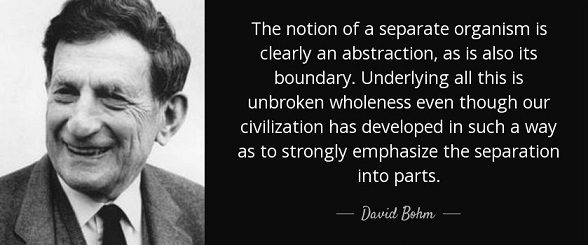
|
|
"We pigs are watching over your welfare" - George Orwell, Animal Farm
Every era of history has been forced to endure the living parable of Orwell’s Animal Farm, a caricature of civilization’s sordid narrative of oppression and deception; yes, he was speaking of a particular version in his own day, but it’s always the same old story.
Herman Wouk’s “The Winds Of War”, a 1983 blockbuster television 37-hour miniseries, featured the horrors of World War II, from the perspective of naval officer Captain Victor Henry’s family.
The actions of Adolf Hitler and his Nazis would result in scores of millions of war casualties; not just for combatants but also hapless civilians, and, most atrocious of all, the methodical genocide of Jews and other minorities.

Most people believed that World War I, with its 40 million deaths, was the limit, had been the “war to end all wars,” that humankind had now learned its lesson, had reached a perigee of depravity; however, only 20 years later, old grievances married to new technologies, in a fresh round of world war, would deliver a mind-numbing 80 million fatalities.
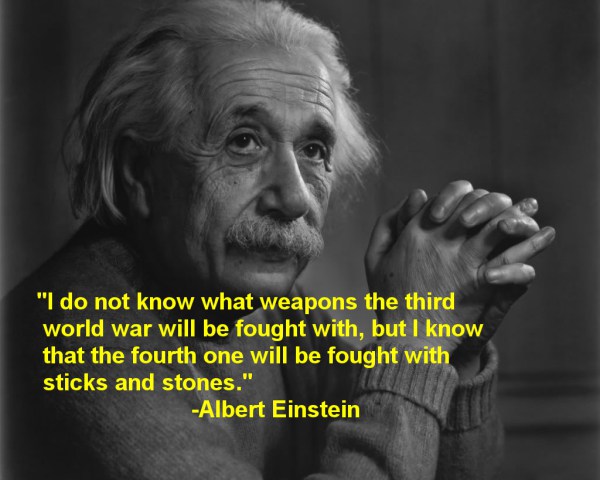
Hitler and the Nazis did not represent ultimate evil
As Elvis sang, that was just a lie.
Today, if you want to attack someone with highest insult, usually a political opponent, you call them a Nazi or a Hitler.
Well, we understand why, and Hitler's bunch were certainly strong contenders in the race for ultimate evil, but – it’s not that simple.
'we eat those apples and drink that milk for your benefit'
In these writings concerning cultism, and on many pages of Word Gems, we have discussed the core problem of what we call “evil.” Not just “out there” in the darkened hearts of the "criminal types”, it’s very close to home, a systemic part of the human condition, something everyone must face.
Art Mokarow 50 years ago warned us ministerial students, to the effect, “It would be very simple if we could eliminate world evil just by getting rid of ‘the bad guys.’ We want to believe that the problem is with all these 'other' people, and that, if we could only get rid of the rotten apples, then, life would be good for the rest of us ‘decent’ folk. But it doesn’t work that way.”
There is something in the human unenlightened heart that leads us to evil, or, better viewed as an insanity. In our present condition of “living from the false self,” we cannot help ourselves but to take refuge in external support-systems, cultish organizations, philosophies, and practices. We crave to live under the protective mantle of ones who would abuse us, faux benefactors who obfuscate with "we eat those apples and drink that milk for your sakes."
|
Editor’s note: At this point in our discussion, the religious fundamentalist will interrupt with, “The whole problem with humanity is that it lives in a fallen state, the remedy to which is a surrendering to Jesus, Mohammed, Buddha, Krishna, Blessed Virgin, Moses, Abraham, LaoTzu, Confucious, SaintChristopher, AmmonRa, NaramSin, Zoroaster, Enlil, Vishnu, Brahma, Shiva, Ishtar, Deva, Mother Teresa, Diana, Zeus, SaintJude, Apollo, Jupiter, Sarasvati, Cukulan, Pachamama, Horus, Isis -- or whatever the adopted local god, the local mythology of one's birth-family, according to the “nomos” of one's native culture, reflecting the “geography” of religion. This entire pantheon of "saviors" is just more cultism, more refashioning of reality, more evasion of personal responsibility, more psychological dysfunction, more surrogate living, more inner-child seeking for the “strong mother-father” symbol, more denial of the “made in the image” sacred status, more fear-and-guilt based true-believer-ism. None of it conforms to "what's real", not a particle is honored in the “real world” of Summerland, as there are no gods to save us over there. The fact is, we don't require a make-over, remodeling. We're not defective. On the deep inside, we were made perfect; each one of us, including Hitler. One's path to spiritual growth has nothing to do with choosing the right god or the right belief system. And it's not a "fallen" state" but a condition of blindness or insanity. What we need to right ourselves is nothing external to ourselves but to open our eyes to the inner riches of the soul.
|
mirror, mirror, on the wall
But, we don’t want to believe this; we prefer scapegoats. We don’t like hearing somebody say, “We are society, we are the world."
What is the source, the impetus, of evil in the world? We're not to point to a mythical Satan.
Where can we find the greatest evil, the biggest threat, to peace and harmony in the world? It is self-deception to shift the blame to Hitler.
We, each one of us, are to look in the mirror to discover who's been causing all the trouble in the world.
Of course, we don't like that kind of talk. We'd rather gin ourselves up, foam and lather, against somebody on social media. As Krishnamurti would say, an honest introspection offends the ego-image we've built for ourselves.
Hitler was defeated in May of 1945. We won the war; so we say. And that kind of evil could never happen again; so we say, because Hitler was a special case, an outlier, of evil; so we say.
Life, we were assured, is good now for peaceful people. But look at what's happened since the end of WWII.
Look at the kind of people we have in leadership positions today; and look at the gullible and selfish masses who support them. Those who promote personal liberties are crucified in the propaganda-press, darkness enshrouds, the Ministry Of Truth sermonizes, a poisonous atmosphere of oppression pervades, and the world, once again, stands on the edge of totalitarian abyss.


We don't like to be told that "we are the world, we are society," that, each one of us, if we were to allow it, is the focal point of evil.
We don’t like being told that every unenlightened mind -- this means you and me -- if sufficiently provoked, if substantially darkened, under the right conditions, with the right opportunities, if profoundly threatened and enraged -- is capable of any atrocity ever committed in history; and more.
|
the seeds of evil

Star Trek: Next Generation, episode "Violations"
| "No one can deny that the seeds of violence remain within each of us. We must recognize that - because that violence is capable of consuming each of us." |
|
Editor’s note: Again, the religious fundamentalist will tend to side-step personal responsibility here with, “the Devil made us do it. We’re not to blame for evil, we’re helpless, just pawns of Satan, the god of this world.” All of this scripted response, however, denies one's innate autonomy, one's capacity to choose evil or good, without which sentience there could be no culpability, and no potential of godlike humanity. The mythical Satan, often employed in the reasonings of fundamentalists, serves as “Joker is wild" card, completes every set for a winning hand, is commandeered to prop up a tortured metaparadigm. Whenever there’s requirement to supply veneer of coherence and logicality to a make-believe theology, Satan is immediately called upon to “fill in the blanks.” They need him, they play off him. He holds together their patched-together world-view. What would they do without Satan to rescue them from disjointed and non sequitur nonsense?
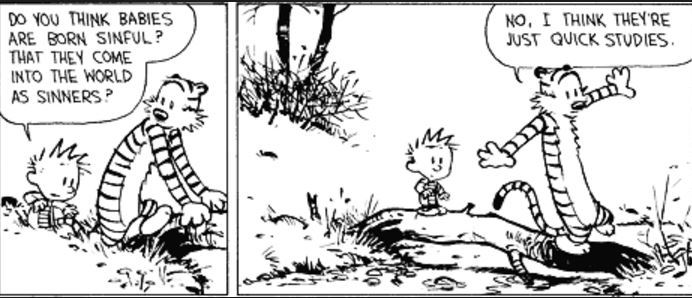
But, we don't need Satan, we suffer no privation in the creation of evil; as Dr. Carl Jung pointed out, unenlightened humanity, each one of us, does so very well, all by ourselves, without coaching or supervision, producing all the evil necessary to ruin and poison planet Earth.
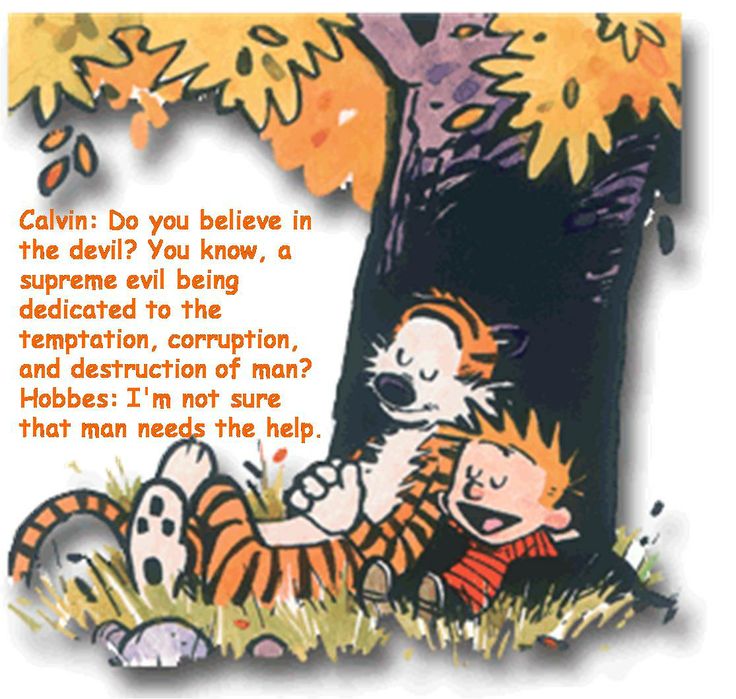
Hitler and his goose-stepping goons will probably spend hundreds, if not thousands, of years in a sewer-pit rat-cellar, and so we need not fear that justice will not be done. This is not the problem.
|
What does fate hold, in the Dark Realms, for Hitler and true-believers who supported him?
Editor’s note: This question cannot be adequately addressed here as lengthy discussion is required. For a more complete treatment of the issue, see the two parts of the “Sensibility” writing. However, as summary, please note the following. For more than 25 years I’ve reviewed hundreds or thousands of reports from the other side concerning the self-imposed consequences of the impenitent cultish mindset. In the New Testament there's a phrase, likely to be authentic – we find Jesus warning that dark regions of the afterlife are inhabited by those characterized by (1) “weeping and wailing” and (2) “gnashing of teeth”; in other words, a sense of (1) victimhood: “poor me, this should not be happening, it’s so unfair, others who are to blame”; or (2) belligerence, they want to fight: “I’ll get free of here, and when I do I’ll show you what pain and violence really mean.” As we learn from historical records, these two sentiments well describe Hitler in this world, and he’s not likely to have soon changed upon transitioning to the next. Can the missionary Spirit Guides help malcontents such as these? Not really, or not soon. They have to wait for a request for help. As discussed in “the 500” writing, no one can really help anyone else, not in any meaningful sense. A directive for change has to come from within. As the great teachers in Summerland put it, each must become his or her own savior. There is no other way to perfect oneself. We have to want to. For people like Hitler, wanting to change, to become service-minded, desiring to render aid to all those damaged by one’s hand during the Earth mission – well, that could take some time for the Hitlers. We’re talking about thousands of years in the sewer-pit rat-cellar. It’s actually worse than this. Father Benson, concerning his own missionary efforts in the dark regions, informs us concerning the worst of the hard-core criminals. Because, over there, one’s own thoughts begin to congeal as reality, the bestial dispositions of the Hitler-types, and party-faithful rabid followers, transmogrify into strange beasts with long claws and other animal-like features. All this acknowledged, in the opinion of the ancient Spirit Guides, everyone, eventually, will find release from dark detention. The Guides have no “official memo” on this from “upper management,” but, in their meditations, as they discern the spirit of God, they sense this to be case. Every human being, everyone harboring an embryonic “spark of God”, one’s “made in the image” capacities, will yet rise from the filth and stench of the – not punitive but – educative Dark Realms.
|
do you really think they wouldn't do more to you, and a lot more, if they had the chance, and thought they could get away with it
Do we see the proclivities of evil in our own hearts? Most do not. There are so many wanna-be Hitlers today -- there always have been; but, also -- so many eager goose-steppers "just following orders" of their own particular Dear Leader.
Hitler was not “more evil” than others. He was not a black-swan aberration. He does not represent a special case - yes, he was a 5-star wacko for sure, and on bad days a "carpet fresser," maybe even with some cognitive disability, but, in the main, a cunning and skilful politician, manipulating the fears and greed of the German people, playing on their sense of victimhood, blaming others for social problems, thereby maneuvering himself toward free rein for malfeasance; and this, on a grand world stage, with seemingly near-unlimited resources, unavailable to the rest of us.
There are a great many today who would love to weild power as Hitler did, but lack the resources. These frothing ones -- see them tv, see them on social media -- no less rapacious than Hitler, but with vituperation unrequited, will need to content themselves with anonymously spilling venom from a distance, hating you and vilifying to the utmost, viciously censoring and sniping. They might yet get there big chance.
Do you really think they wouldn't do more to you, and a lot more, if they had the chance and thought they could get away with it? They might yet get their big chance.
And concerning Hitler's celebrated maniacal status, let us not deceive ourselves: He was not unlike the big sloppy political grins of today; our own Ministry of Truth, censoring "misinformation," denying free speech, creating illusions of prosperity, rigging elections, swat teams to ordinary citizens' houses, financial-asset bubbles with mountains of debt, their own propagandized Theresienstadt “paradise ghetto” - as they demonize and excoriate, create drumhead court trials, and freeze bank accounts, of ones who publicly disagree, the "domestic terrorists". Yes... they might yet get their big chance.
Lady Truth falls in the streets, violated by the mob. It is one minute before midnight, getting very late, with time being marked by those who “eat apples and drink milk” for our benefit.
For more discussion, see the "fairness" page.
|
|
Editor's last word:
See an extensive list of admonitions from many teachers on the necessity of "going within" and trusting one's true self.
“Here's an easy way to figure out if you're in a cult: If you're wondering whether you're in a cult, the answer is yes.” Stephen Colbert
The answer is 'yes' for many of us.
Any philosophy, group, party, "ism" or religion that would seek to diminish a sense of self-respect, of one's right and ability to direct one's own life; that, you have no right to your own thoughts and must be censored; any doctrine or "infallible guru" that intimates to inspire guilt, that you are "not enough," without direct access to God; that there is something wrong with you, defective creature that you are, even from the womb -- is a form of mind-control cultism.

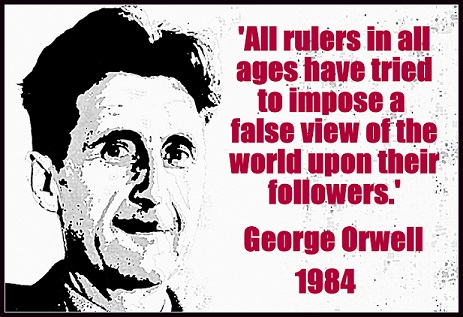
You must free yourself, and want to free yourself, from this form of slavery; until then, no damsel might be liberated from her distress, even by a Twin Soul lover.
And that's why, ultimately, the Nice Young Man at Church is as destructive, and far more so -- as he pandemically infects civilization with his fear-and-guilt propaganda -- than any Jim Jones kool-aid party.

Where did we get this sordid idea that a hooded figure is somehow more "religious," more "holy," more acceptable to God, than one who stands smiling, at ease with life, in the open sunny air?
Look at this oppressed devotee, this poor fellow -- can you feel his sense of self-loathing, his self-adjudicated perception of unworthiness?
Who told him that he is "not enough"? Who encouraged his life-paradigm immersed in fear-and-guilt? Who has enslaved the billions, for thousands of years, with this form of mind-control?
Certainly not the great Spirit Guides who condemn this merchandizing of the human spirit and who organize "deprogramming" rescue teams for the religious hapless upon crossing over.
In our discussions on cultism, we have seen that its forms and guises extend to arenas of power politics, the mercenary corporate world, materialistic science, totalitarian-leaning academia, the vacuous celebrity culture, and other vainglorious aspects of society.
This acknowledged, however, in all of history, with it endless and dreary parade of brutalities and deceptions, Big Religion, Dear Mother Cult, among a crowded field of would-be masters, has been the greatest curse upon humankind.
|
|














